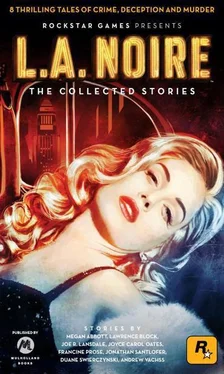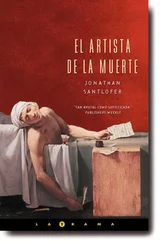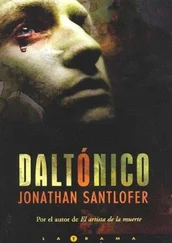“You drive in here, and you drive right out in that nice little Ford we got for you. California plates. You change clothes first, head north. The Mex car disappears, and so do you. Sound good?”
“Good enough,” the smaller man said.
“Not for me, it ain’t,” O’Reilly said. “What if the cops decide to stop that car? Me, I don’t speak Spanish.”
“The cops?” The obese man laughed. “Who do you think runs this town, the fucking mayor? The studios, that’s who’s in charge. The cops already got the license plate. If there’s one car that ain’t gonna be stopped tomorrow night, it’s that one over there.”
The man with O’Reilly lit a cigarette.
“You’d think they’d learn, wouldn’t you?” The fat man chuckled. “I mean, it was only a couple of months ago that they had to take out that yid? You know, the one Virginia Hill ended up with? Now this fuck, he thinks he’s out on this coast, they can’t reach out and touch him, too?”
“I’ve spent the night in better places,” O’Reilly said, surveying the space above the garage.
It was bare-bones, lacking even a radio, but it had two separate cots, a bathroom, and a refrigerator.
“And worse.”
“That, too,” O’Reilly agreed, watching his companion nail a large-scale map of their target area to the wall. “You really think it’ll be as easy as that fat slob says?”
“We come south on Formosa,” his partner said, drawing a line with a thick red grease pencil. “Then left on Melrose. We wait for the target to walk toward us. Soon as he passes by the car, I get out, step behind him, catch up quick, and put a couple in his head.
“I get back in the car. You take off. Make a left on Mansfield—see, right here?—a quick left again on Waring, takes us right back to Formosa. Go up a couple of blocks, make a right, and follow it all the way back here… Barton Avenue, that’s where we are now. After that, there’s nothing for us to do but drive back home.”
“How come I drive?”
“You’re a better driver than me.”
“What kind of piece is that?”
“Luger.”
“Never heard of it,” O’Reilly said. “Me, there’s nothing like the army-issue .45. It ain’t no target pistol, but whatever you hit with it, down they go. They stay down, too.”
“This one’s army-issue, too.”
“Huh?”
“German army. Just for officers—like yours—and very precise.”
“It don’t look like much.”
“Smaller rounds. Nine-millimeter. A little less than a .38, but very fast. Has to be. The way they designed these things, you need a lot of recoil to chamber the next cartridge.”
“Nine-millimeter. Even sounds weird.”
“Nine-millimeter Parabellum, they called it. The Germans, I mean. It’s from Latin. Means: if you want to be left in peace, be prepared for war.”
“Yeah? Makes sense to me. Okay. You want the shower first?”
“I’m good.”
The next night, at 10:57 p.m., a man wearing a black coat with red silk lining turned on Melrose and began to walk down the block. He glanced neither right nor left, but drew covert glances from a wide variety of nightcrawlers.
As he passed a blood-orange 1945 Chevrolet dropped almost to street level, a man got out of the passenger seat, fell into step behind him, pulled a pistol from his suit jacket, and shot him in the back of the head without breaking stride.
He fell to the sidewalk, face up, the red lining of his overcoat mocking the promise of the neon wash from a nearby window.
The shooter stepped close and shot him three more times, carefully placing each round into the dead man’s face.
Instantly, the shooter spun, eyes sweeping a now-empty street. He walked back toward the lowrider. As he passed, he emptied the magazine of his Luger into the driver’s face, head, and neck without breaking stride.
The shooter pocketed his pistol and kept walking to the end of the block. There, he climbed into the backseat of a fog-gray Cadillac that had been idling at the corner.
The Cadillac slid into traffic. Neither of the two men in the front seat turned around.
The man in the backseat snapped a new magazine into his pistol.
Megan Abbottis the Edgar award–winning author of the crime novels Queenpin , The Song Is You, Die a Little, and Bury Me Deep . Her writing has appeared in Wall Street Noir, Detroit Noir, Best Crime and Mystery Stories of the Year, Phoenix Noir, Storyglossia, the Los Angeles Times Magazine, The Believer, Queens Noir, and The Speed Chronicles . She is also the author of a nonfiction book, The Street Was Mine: White Masculinity in Hardboiled Fiction and Film Noir, and the editor of A Hell of a Woman, an anthology of female-themed crime fiction. She has been nominated for the Hammett Prize, the Los Angeles Times Book Prize, and the Pushcart Prize. Her newest novel, The End of Everything (Little, Brown, July 2011), is set in the suburbs of the 1980s and tells the story of a thirteen-year-old girl whose best friend disappears. Abbott lives in Queens, New York.
Charles Ardaiis the Edgar and Shamus Award–winning author of four novels, two of which ( Little Girl Lost and Songs of Innocence ) are currently in development as feature films from Universal Pictures. His writing has appeared in dozens of publications, ranging from Time to Twilight Zone , as well as in series such as The Year’s Best Horror Stories and Best American Mystery Stories. As founder and editor of the acclaimed pulp-fiction series Hard Case Crime—described by Neal Pollack in The Stranger as “the best new American publisher to appear in the past decade”—Ardai has had the opportunity to work with authors such as Stephen King, Mickey Spillane, Pete Hamill, Donald E. Westlake, Ed McBain, Madison Smartt Bell, and Lawrence Block. He is also a writer and producer on the TV series Haven .
In addition to his work as a writer, publisher, and entrepreneur, Ardai serves as a managing director at the D. E. Shaw group, in which capacity he has had responsibility for technology ventures such as Schrödinger, a leading developer of software for computational chemistry (Ardai serves as the firm’s chairman). His best-known creation is the Internet service Juno, which provided free e-mail and Internet access to millions of computer users in the 1990s.
Lawrence Blockis the highly prolific and respected author of more than sixty novels and eleven collections of short fiction. He has won almost every major award available to mystery writers, including four Edgar Awards, four Shamus Awards, two Falcon Awards (presented by the Maltese Falcon Society in Japan), and the Nero Award. A past president of the Private Eye Writers of America and the Mystery Writers of America, Block has published articles and short fiction in American Heritage, Redbook, Playboy, GQ, Ellery Queen’s Mystery Magazine, and the New York Times. Three of his novels have been turned into major studio films.
Joe R. Lansdaleis the author of more than thirty novels and many short stories and articles. He also writes comic scripts and screenplays. His novella Bubba Ho-Tep was turned into a film of the same name, and his short story Incident On and Off a Mountain Road was made into an episode of Showtime’s Masters of Horror . He is currently producing a film based on his story Christmas with the Dead .
Joyce Carol Oatesis the author of a more than fifty novels, twenty collections of short fiction, ten poetry collections, and numerous nonfiction pieces and plays, including, most recently, the story collection Give Me Your Heart and the memoir A Widow’s Story . Twice nominated for the Pulitzer Prize, she is a recipient of the PEN/Malamud Award, honoring excellence in the art of the short story, an O. Henry Award, the Bram Stoker Award, National Book Award, the Ivan Sandrof Lifetime Achievement Award of the National Book Critics Circle, and the 2010 National Humanities Medal.
Читать дальше












